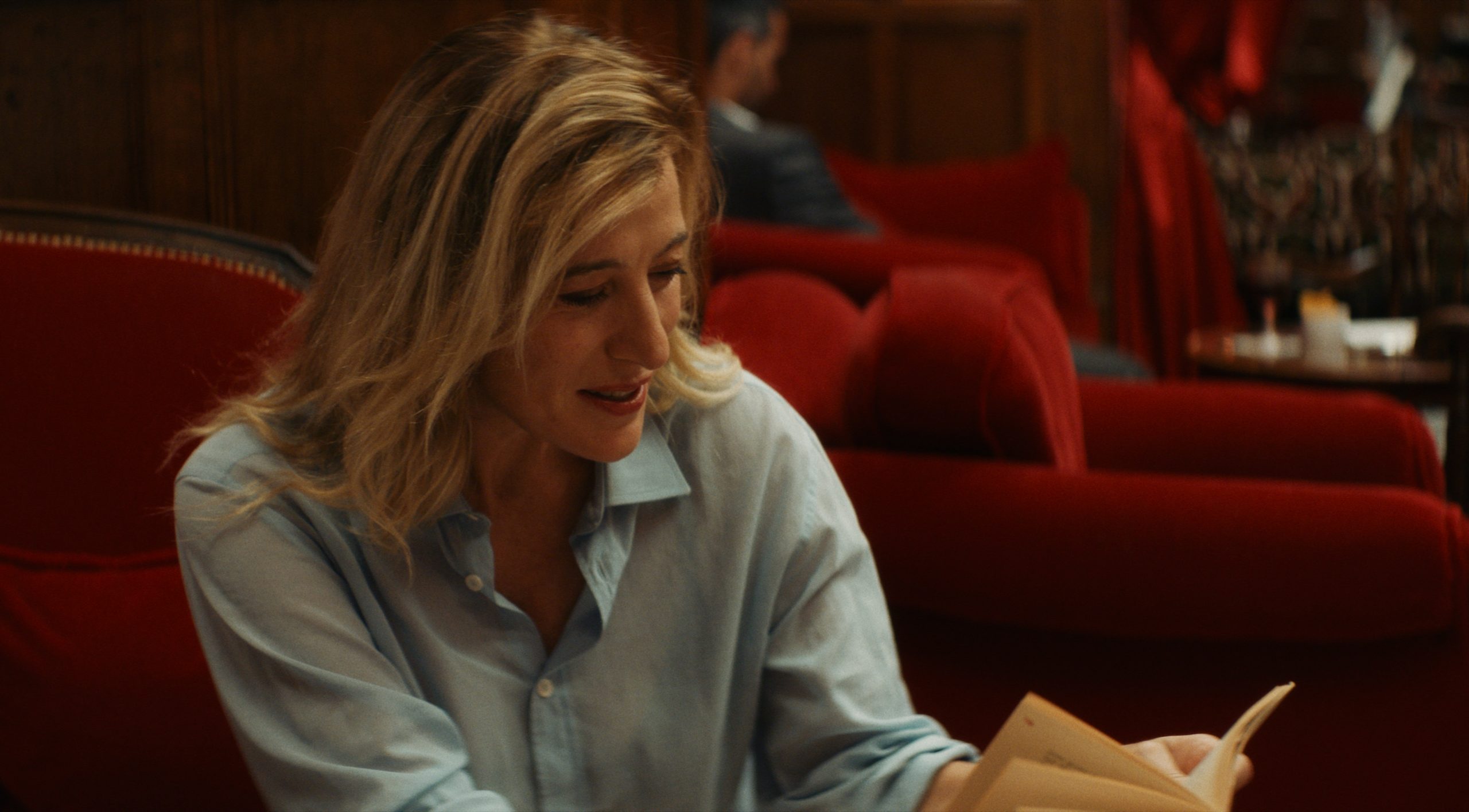
★★☆☆☆
In the opening scene of Anaïs In Love, our titular protagonist Anaïs Demoustier is literally running late. It’s quite the charming introduction: as she rushes up the stairs to her apartment, crumpled bouquet under one arm and her face lit by the setting sun, she seems every bit the endearing hero the film clearly wants her to be. Anaïs bombards her stunned landlady with her relationship woes while sticking a smoke alarm to the wall, before rushing out the door with a bicycle to make her next appointment, a party to which she is, again, late.
As far as character entrances go, it’s certainly worthy of Anaïs’ whirlwind personality. The problems start when we see the same story happen again. And again. And again. Anaïs, you see, is well known for being late. Her partner gets grumpy when she’s late to the cinema. Her dissertation supervisor gets furious when she’s late to a conference. Her mother is pleasantly surprised when her train arrives on time. A pattern starts to emerge, and it paints a picture of a character just annoying enough that even Demoustier’s herculean levels of charm can’t make us care about her story.
It’s a shame, then, that Anaïs In Love really is all about Anaïs. A 30-year-old grad student writing a thesis on the philosophy of passion, she leaves her on-again-off-again not-boyfriend for an affair with a married man twice her age, before falling for his wife, celebrated writer Emilie (Valeria Bruni Tedeschi). This farcical setup is mined for a generous thimbleful of its comic potential, and is interspersed with the debris of Anaïs’ predictably chaotic personal life (she can’t afford her rent! She almost killed a Korean couple in a fire! What fun!)

Valeria Bruni Tedeschi as Emilie
Occasionally, the story will attempt to throw in something more serious. Early on we find out Anaïs’ mother has cancer, a turn of events which Anaïs is very concerned will affect her own emotional growth. The dialogue also makes regular, confident stabs at saying something profound (“You’re violent too, violent in your inertia”), but usually misses the mark and comes across as both unbelievable and blindingly pretentious.
Anaïs’ character, despite her faults, just refuses to evolve. She’s like a fur-less Paddington Bear or, if the Joker had a penchant for French philosophy. Every character she meets acknowledges how infuriating she is, but none of their barbs seem to stick. Instead, Anaïs floats from crisis to personal crisis with the grace of an inflatable wrecking ball, while the supporting cast fall over themselves to declare their love for her in a manner which might be funny on paper, but in practice just seems improbable.
It’s not that static character arcs can’t work. Those two examples are clear evidence that they can. They just usually require either a host of supporting characters forced to change by the hero’s journey, or a protagonist compelling enough that we can’t take our eyes off them. And Anaïs In Love, tragically, delivers neither.

Anaïs and Emilie take a dip
This isn’t to say that there’s nothing to admire in the film. Demoustier does bring a hefty dose of natural charisma to Anaïs, flashes of which did briefly melt my stony heart after I had long lost patience with the script. The cinematography, too, is consistently handsome, intimate movements and popping colours continuing to impress even as France’s seemingly permanent state of golden hour began to wear thin. And there’s nuggets of a touching story of self-discovery buried underneath the various romantic plots, an argument for living in the moment which unfortunately never quite gets its point across.
If you hadn’t already guessed, I’m chronically late to things. Perhaps my response to Anaïs In Love was coloured by subconscious self-loathing. Perhaps the problem with Anaïs isn’t that she’s not relatable enough, but the opposite. But in discussing a book recommendation about halfway through the story, Anaïsgives her mother a huffing ultimatum that seems oddly prophetic of the film’s reception as a whole. “I won’t give you a lecture: you either like it, or you don’t.” I don’t. Depending on your tolerance for the protagonist’s antics, your own mileage may vary.
Anaïs In Love is in cinemas and available to download from 19th August




